Business in the EFTA Countries
Module “Business in the Countries of the Central European Free Trade Agreement (CEFTA)” (e-learning,  )
)
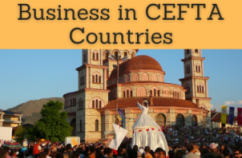
The main objective of the Module “Foreign Trade and Business in the CEFTA Countries” (15 ECTS) taught by EENI Global Business School, is to provide an overview of the economy of the Central European Markets (Albania, Bosnia and Herzegovina, Macedonia, Moldova, Montenegro, Serbia and Kosovo) and the business opportunities in the CEFTA Region.
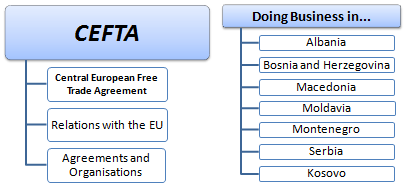
- To learn to do business in Albania, Bosnia and Herzegovina, Macedonia, Moldova, Montenegro, Serbia and Kosovo
- To analyze the business opportunities in the Central European Region of the CEFTA
- To know how to negotiate in the Central European Markets of the CEFTA
- To understand the importance of the CEFTA and the influence of the regional Trade Agreements
- To analyze Foreign Trade and foreign direct investment in the CEFTA Markets
- To design a business plan for the Countries of the CEFTA
Module intended for all those wanting to specialize in all the related topics to the foreign trade and business in the Central European Markets of the CEFTA (30 million people).

- Credits:
15

- Duration: 15 weeks It is recommended to dedicate about twelve hours of study per week following a flexible schedule. It is possible to reduce the duration dedicating more hours a week
- Download the syllabus (PDF)
Languages:  .
.
- Also available in For improving the international communication skills, the student has free access to the learning materials in these languages (free multilingual training).
 Curso negocios países CEFTA
Curso negocios países CEFTA  Affaires pays de l’ALECE
Affaires pays de l’ALECE  Curso negócios nos países ACELC
Curso negócios nos países ACELC
Sample: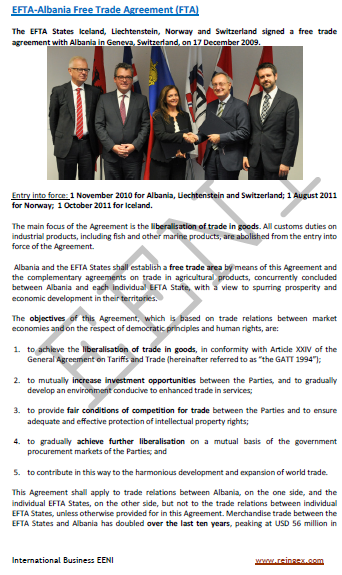

This Module belongs to the following Higher Education Programs taught by EENI:
Masters: International Business, Foreign Trade.
Doctorate specialization in European Business.
Masters for the Students from
 Albania,
Albania,
 Bosnia,
Bosnia,
 Macedonia,
Macedonia,
 Montenegro,
Montenegro,
 Moldova,
Moldova,
 Serbia, and
Kosovo
Serbia, and
Kosovo
1- The CEFTA Countries and the Orthodox Economic Area (PDF).
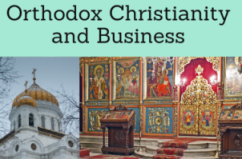
- Major religions of the CEFTA Countries: Orthodoxy (Christianity) and Islam (Albania)
2- CEFTA.
3- Business in Albania: The third world chromium producer
4- Business in Bosnia and Herzegovina: becoming a market economy.
5- Business in Macedonia: one of the fastest growing European economies.
6- Business in Moldova: one of the poorest countries in Europe.
7- Business in Montenegro: an economy based on the aluminum industry.
8- Business in Serbia: an emerging Central European Market
9- Doing Business in Kosovo

10- Economic Relations of the Countries of the CEFTA with the EU
- European Neighborhood Policy
- EU Enlargement
- EU-Western Balkans
- Black Sea Synergy (EU)
- Eastern Partnership
- EU-Moldova Agreement and a Free-Trade Area
- Ukraine-EU Agreement
- Stabilization and Accession Agreements of the EU with Albania and Montenegro
Sample: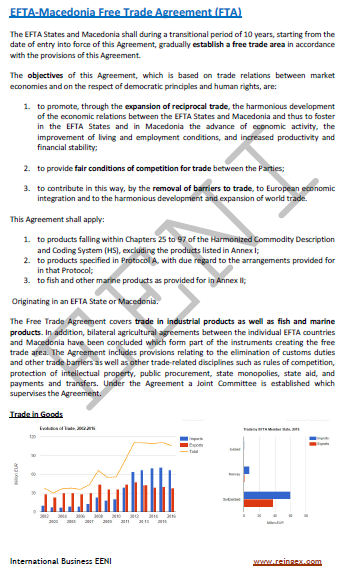
11- Trade Agreements (FTA) and Economic Organizations related to the CEFTA Countries.
- Black Sea Cooperation
- Central European Initiative
- Adriatic-Ionian Initiative
- Regional Cooperation Council
- All the Countries of the CEFTA have Trade Agreements (FTA) with Turkey and the EFTA States (Switzerland, Norway, Iceland and Liechtenstein):
- Macedonia has a Trade Agreement with Ukraine
- Moldova has trade agreements with Azerbaijan, Armenia, Georgia, China and the Kyrgyz Republic
- Moldova has Trade Agreements with Ukraine and Russia
- Serbia has trade agreements with Russia, Ukraine, Belarus and Kazakhstan
12- Logistics Corridors

- Europe-Caucasus-Asia Corridor
- Pan-European Corridor IX (Finland-Greece)
- Access to the Trans-Caspian Corridor
13- Business Plan for the Central European Markets of the CEFTA.
The Module includes the Market Access Tool:
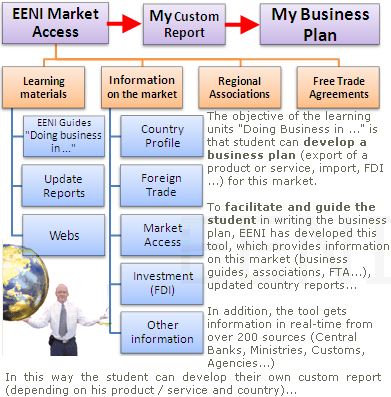
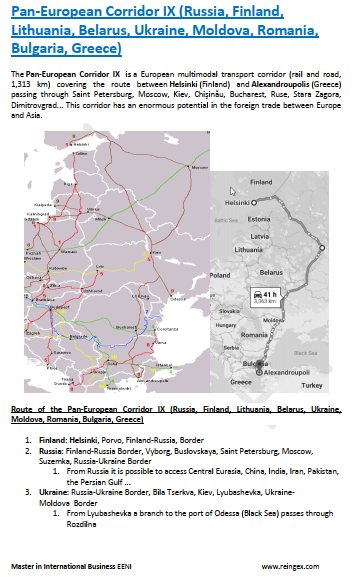
Other regional institutions related to the EFTA Countries:
- UNECE
- OSCE
- Rail Transport Committee
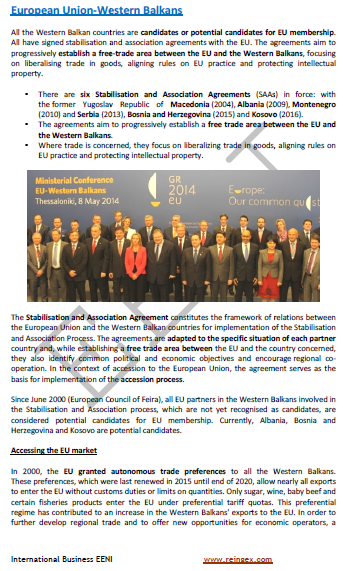
Sample: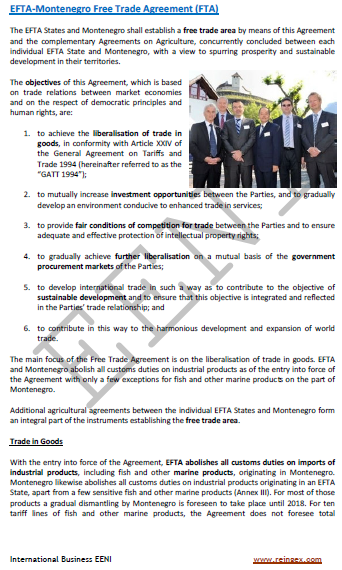
Sample: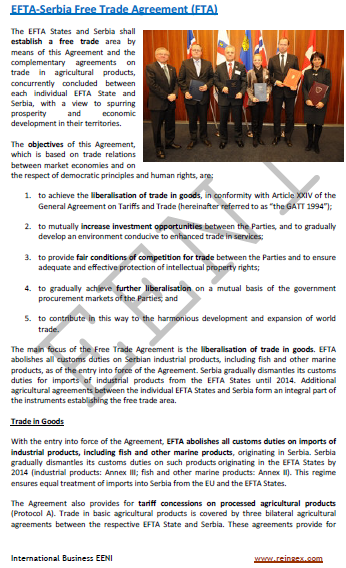
Sample: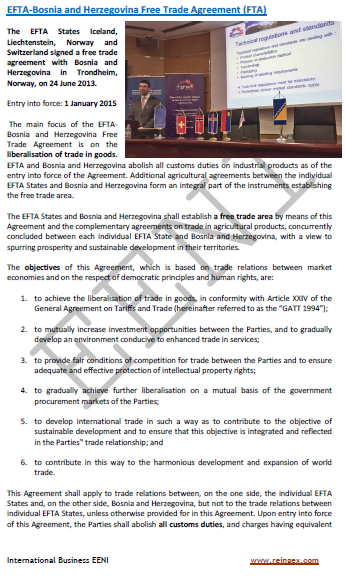
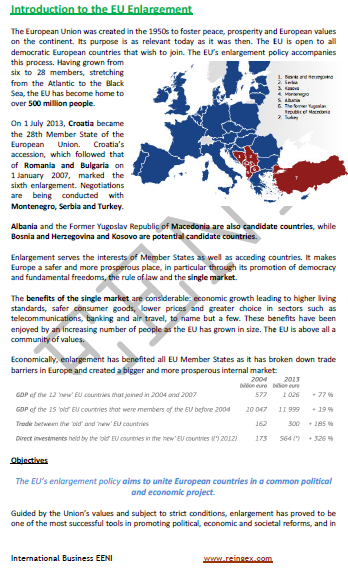
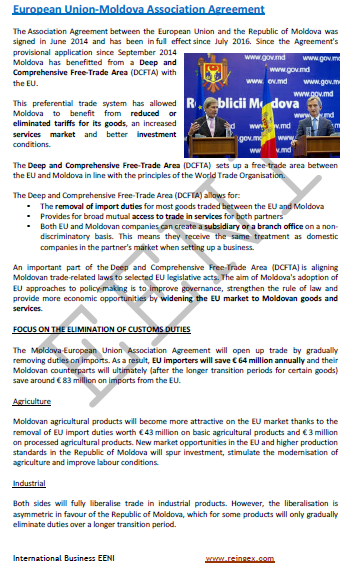
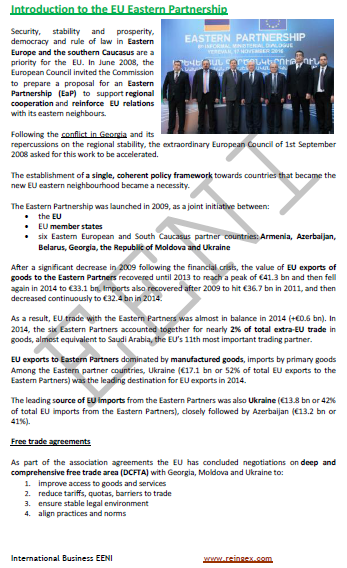
(c) EENI Global Business School (1995-2024)
We do not use cookies
Top of this page



